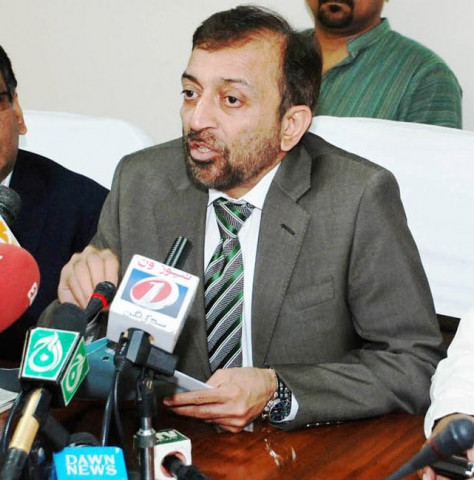MQM announces electoral application forms for the 'poor and middle-class'
Forms available at election cell of MQM headquarters, zonal and district offices and MQM's official website.

File photo of MQM leader Farooq Sattar. PHOTO: PID/FILE
Addressing a press conference in Karachi, MQM leader Farooq Sattar said, “Political and religious parties of the country sell their election tickets for millions to selfish candidates, who don’t even show their faces in their constituencies after they get elected.”
He said that poor and middle-class people, who want to serve their people, never get a chance to contest in the elections because they don’t have enough money to buy tickets.
“However, MQM has always supported poor and middle-class people, who are literate and talented. Therefore, the MQM has issued nomination forms for such people, who want to represent the people of Pakistan, for free, irrespective of their religion, caste and ethnicity.”
He further added that the forms would be available at the election cell of MQM headquarters, Nine Zero (90) and other zonal and district offices. The form, he said, will also be available on their website www.mqm.org.



















COMMENTS
Comments are moderated and generally will be posted if they are on-topic and not abusive.
For more information, please see our Comments FAQ